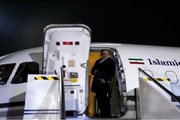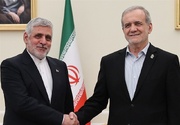Joe Biden who officially entered the White House on January 20 after a controversial transfer of power, reached the 100th day of his presidency on Friday, April 30. During his election campaigns, he announced that the US will return to the JCPOA if he elected as the US President but more than 100 days after taking office, the US has not still returned to the deal.
Meanwhile, recently, some media reported that Saudi Crown Prince Mohammed bin Salman is willing to talk to Iran. The main analysis of the media and political circles in Bin Salman's sudden turn towards Iran is based on the fact that the internal conditions and the surrounding atmosphere forced the regime to make such a change of tone.
To know more about the issue, we reached out to Shireen Tahmaasb Hunter, Professor of Political Science at Georgetown University in the US.
Here is the full text of the interview:
As you know, the Vienna talks are underway. Iran wants the lifting of all sanctions and then verifying them in order to return to the JCPOA commitments. While the US administration does not seem to intend to lift all sanctions. Given these differences, how do you see the prospects for these negotiations?
It is very unlikely that the US will accept Iran's conditions. Washington has said that it will lift nuclear-related sanctions in exchange for Iran reversing its actions regarding the JCPOA and return to the JCPOA-imposed limits on enrichment. Therefore, the success of the talks would greatly depend on Iran as well as on the US. Maximalist demands by either side would doom the talks.
Biden had promised in his election campaign that he would return to the JCPOA. But we see that more than 100 days after taking office, the US has not still returned to the deal. What is the reason for this and why has he eroded the negotiations?
There is considerable political opposition in the US, including by some democrats, for its return to the JCPOA. Therefore, Biden had to act cautiously, especially that he needs congressional support for his domestic programs.
According to some, Biden intends to influence the upcoming Iranian presidential election by eroding the negotiations. what is your opinion?
I think this is a theory that is more popular in Iran. But in reality, the US believes that governments in Iran have not the final say on important national security and foreign policy issues. Therefore, it believes the character of the elected part of the Iranian political system does not much affect its foreign policy, including the issue of the JCPOA. Consequently, it would not take any decision on the JCPOA simply to affect the outcome of the Iranian elections. The US decision will be based on the calculation of its own interests and the political realities in Washington.
How do you assess the impact of Israel on the erosive process of the US return to the JCPOA?
Israel, of course, would be unhappy with the US return to the JCPOA. However, it appears that the Biden administration has decided to ignore Israel's objection and provided that Iran also act in good faith and reverse its decision and return to the full observance of the JCPOA. It is really politics in Tehran that would have the most significant impact on the US decision and the fate of the JCPOA.
Bin Salman has recently retreated from his previous stance on Iran in a clear turn and welcomed interaction with Iran. What is the reason for the change in the Saudi prince's position?
Two reasons have been important in changing Bin Salman's approach towards Iran: First, the shift in US global priorities and its decision not to give blanket support to Saudi Arabia. Second, the war in Yemen has reached a stalemate forcing Saudi Arabia to seek a compromise solution to the Yemen war.
Interview by Zahra Mirzafarjouyan


























Your Comment